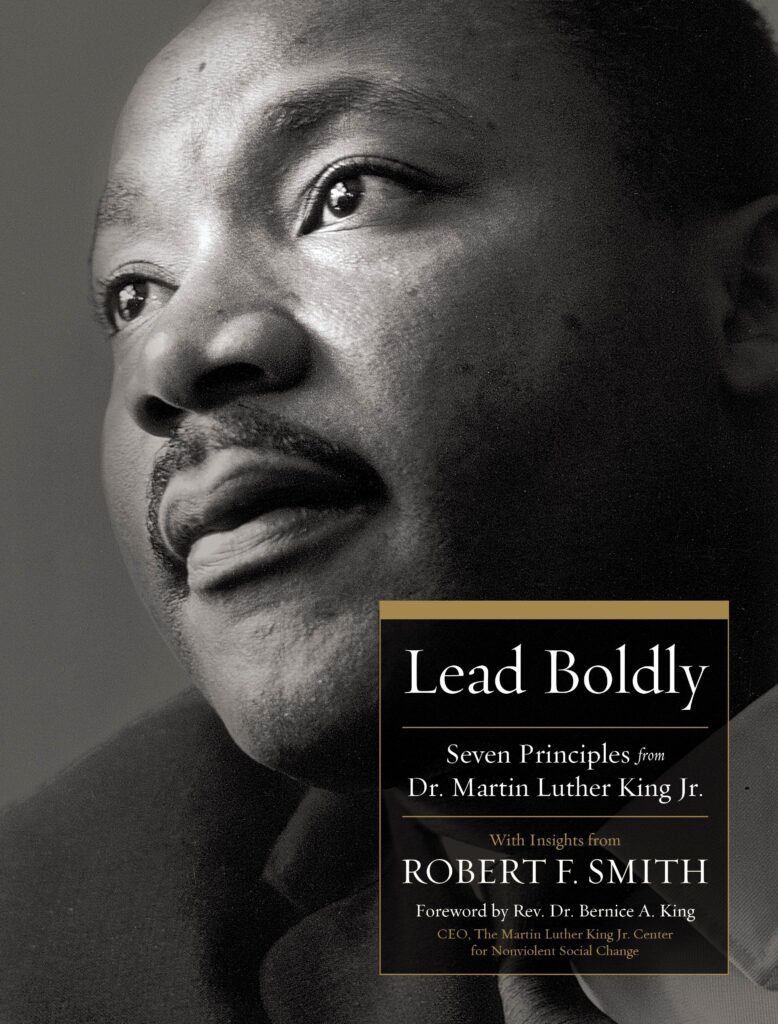If you’ve ever had to do something thorny or tricky, something you’ve never done before, that’s how you get good at it: you watch a video online or see someone do it in person before trying it and putting your own spin on it. See one, do one, show one, they say. As in “Lead Boldly: Seven Principles from Dr. Martin Luther King Jr.” (HarperCollins Leadership, August 2025) by Robert F. Smith, it’s always best to learn by example.
Smith was at the March on Washington in August of 1963, but he has no recollection of it: he was an infant in his mother’s arms at the time. However, he grew up on stories of that day and on other accounts of the efforts of the Rev. Dr. Martin Luther King, Jr., the legendary American civil rights activist who was fatally shot in 1968. Smith cut his teeth on tales of Jim Crow, the “Green Book” segregation era travel guide for Black Americans, and the lack of generational wealth. Understanding this history is why, in his business, he reaches for the seven principles that King taught.
Leaders, Smith says, know the importance of equal opportunity and work to change wealth gaps and raise up future generations of Black citizens—often through Community Development Financial Institutions (CDFIs) that help underserved areas. Leaders build community, then work to move everyone forward by encouraging STEM education in local schools, and by ensuring that the latest technology is within reach of all citizens. They meld both sides of America into one cohesive citizenry to harness the power of togetherness, and to create equity and opportunities.
Leaders build bridges between their group and others, and work to keep them strong. A good leader is brave enough and willing enough to step up and declare that something’s wrong, and to see that that thing is fixed. And finally, you can “lead boldly” by taking the reins, gathering your team, and continuing on with efforts to better all citizens in all corners.
Looking for some inspiration from the C-Suite?
You might find it in “Lead Boldly,” but you might notice that what you read is somewhat inadequate. Rather than hearty information, it’s a lot of opinion—valid opinion, but opinion nonetheless—that may work better for younger up-and-comers. Worse: there’s really not enough of it. That can be frustrating.
Author and head of Vista Equity Partners, Smith starts each chapter with a different speech by King and makes it relevant for anyone who hopes to make change. After King’s rousing words, however, readers may be left wanting more direction. You’ll be fired up… and then quickly cooled down—perhaps because the book is relatively short, at just 240 pages, roughly half of which is speech transcripts. That leaves the other half to cover a lot of ground.

Which it does, but just not enough.
The book is full of great information, but it feels incomplete. Perhaps the best way to get the most out of it is to study the speeches and use Smith’s lessons as a launching pad. Do your own homework and then let “Lead Boldly” inspire you further.









